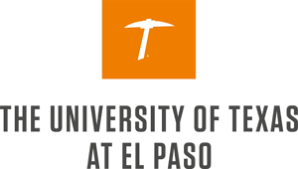Introduction
A degree in computer engineering is an interdisciplinary program that combines principles of electrical engineering and computer science to design and develop computer systems, hardware, and software. This field focuses on the integration of hardware and software, enabling computer engineers to create efficient, high-performance systems that are essential in today’s technology-driven world. Computer engineering encompasses a wide array of topics, including digital circuits, microprocessors, embedded systems, networking, and system architecture. Graduates often find themselves working in industries such as telecommunications, robotics, automotive, and consumer electronics, contributing to innovations in technology.
While computer engineering, software engineering, and computer science share some common ground, they each have distinct focuses and career paths. Computer engineering primarily deals with the design and development of hardware and software systems, emphasizing the integration of both components. It covers a broad range of topics, including hardware design, embedded systems, and network architecture. Computer engineers are often involved in the creation of devices and systems that require both hardware and software to function effectively, making them key players in the development of new technologies.
Texas is home to several highly regarded computer engineering programs, offering students access to quality education and extensive resources. Notable institutions include the University of Texas at Austin, Texas A&M University, and Texas Tech University. These programs provide a comprehensive curriculum that covers essential topics in computer engineering while also emphasizing hands-on learning and practical experience. Many universities feature state-of-the-art laboratories, research facilities, and collaboration with industry partners, allowing students to engage in innovative projects and cutting-edge research.
Computer Engineering Degree Programs in Texas
Admission requirements for bachelor’s programs in computer engineering generally include a high school diploma or equivalent, with a strong emphasis on mathematics and science coursework. Students are typically expected to have completed subjects such as algebra, calculus, physics, and computer science during their high school education. Most universities require standardized test scores from the SAT or ACT as part of the application process. In addition, prospective students may need to provide letters of recommendation, a personal statement, and a resume detailing any relevant extracurricular activities or experiences related to technology and engineering.
For master’s programs in computer engineering, applicants are typically required to hold a bachelor’s degree in computer engineering, electrical engineering, computer science, or a closely related field. Admission requirements may include a minimum GPA, usually around 3.0, and standardized test scores such as the GRE, although some programs have adopted a test-optional policy. Candidates must also submit letters of recommendation, a statement of purpose detailing their research interests and career goals, and a resume highlighting relevant work or research experience. An overview of Master’s and Bachelor’s degree programs in the State of Texas can be found here:
Bachelor’s Degree Programs
Prairie View A&M University
- Prairie View, TX
Credit Hours: 126
Resident Tuition: $11,299 (PYR)
Non-Resident Tuition: $26,874 (PYR)
Program Overview:
Computer Engineering focuses on applying hardware and software to solve practical problems. The program prepares students for professional careers by providing a strong foundation in chemistry, mathematics, and physics, along with coursework in electric circuits, digital logic, computer architecture, programming, data structures, operating systems, software engineering, and microprocessor systems.
Southern Methodist University
- Dallas, TX
Credit Hours: 120
Tuition: $59,500 (PYR)
Program Overview:
The Electrical and Computer Engineering Department focuses on shaping the future of technology, which is at the core of today’s society. Advances in personal computers, networks, integrated circuits, and wireless systems have transformed daily life. Computer engineers are in high demand in industries like autonomous systems, where they develop systems that navigate and adapt to their environment, utilizing machine learning, image processing, and human-machine interaction.
St. Mary’s University
- San Antonio, TX
Credit Hours: 128
Tuition: $1,119 (PCH)
Program Overview:
Combining expertise from electrical engineering and computer science, they learn electronics hardware, digital systems, microprocessors, and system architecture, along with software engineering, algorithms, and computer networks. Students in this program specialize in areas like programming, network communications, wireless security, data mining, deep learning, and artificial intelligence.
Texas A&M University
- College Station, TX
Credit Hours: 128
Tuition: $54,000 (PYR)
Program Overview:
The computer engineering curriculum covers both hardware and software from a comprehensive systems perspective. Students take courses in electrical circuits, digital systems, computer architecture, programming languages, algorithms, operating systems, and software engineering, supported by a foundation in physics, chemistry, and mathematics. The program integrates core material from traditional computer science and electrical engineering, with opportunities to explore electives in areas like AI, machine learning, cybersecurity, robotics, and embedded systems.
Texas Tech University
- Lubbock, TX
Credit Hours: 128
Resident Tuition: $11,852 (PYR)
Non-Resident Tuition: $24,092 (PYR)
Program Overview:
The undergraduate curriculum in electrical and computer engineering provides a comprehensive education, preparing students for diverse career options in a rapidly evolving technical landscape. Students can choose from various elective courses to specialize in areas such as analog VLSI, MEMS, power systems, signal processing, communication systems, high-frequency communications, control systems, and digital systems, especially at the senior level.
University of Texas – Arlington
- Arlington, TX
Credit Hours: 128
Resident Tuition: $11,728 (PYR)
Non-Resident Tuition: $29,660 (PYR)
Program Overview:
The Department of Computer Science and Engineering offers three bachelor’s degree programs: Computer Science, Computer Engineering, and Software Engineering. Each program incorporates design experiences throughout the first three years, culminating in a major team-oriented project that simulates industrial work. Students are encouraged to engage with the profession through cooperative education, professional societies, plant visits, special projects, and guest speakers.
University of Texas – San Antonio
- San Antonio, TX
Credit Hours: 128
Resident Tuition: $7,529 (PYR)
Non-Resident Tuition: $26,078 (PYR)
Program Overview:
Pursuing a Bachelor’s Degree in Computer Engineering at UTSA equips you with essential engineering skills to develop and manage digital systems. The program integrates math, computer science, and electrical engineering, covering topics like logic design, digital systems design, and microprocessor assembly programming. Graduates can pursue careers in designing and testing hardware, including routers, microprocessors, and motherboards.
University of Texas – Rio Grande Valley
- Edinburg, TX
Credit Hours: 128
Resident Tuition: $9,538 (PYR)
Non-Resident Tuition: $19,333 (PYR)
Program Overview:
The Bachelor of Science in Computer Engineering program at The University of Texas Rio Grande Valley aims to produce graduates who are well-prepared for productive careers in computer engineering or for pursuing advanced degrees. Graduates are expected to demonstrate a strong breadth and depth of knowledge, engage in lifelong learning to adapt to the evolving field, and understand the technical, business, social, ethical, and human contexts of their engineering work.
University of Houston
- Houston, TX
Credit Hours: 128
Resident Tuition: $11,888 (PYR)
Non-Resident Tuition: $27,926 (PYR)
Program Overview:
The Bachelor of Science in Computer Engineering (BSCpE) program is divided into two phases: the first two years focus on foundational skills in math, science, and electrical engineering, along with a core liberal arts curriculum. In the final two years, students specialize in Computer Engineering through a combination of Electrical Engineering and Computer Science courses.
University of Houston – Clear Lake
- Houston, TX
Credit Hours: 127
Resident Tuition: $9,101 (PYR)
Non-Resident Tuition: $26,081 (PYR)
Program Overview:
The Bachelor of Science in Computer Engineering at the University of Houston-Clear Lake provides hands-on experience in digital system design, microprocessors, embedded systems, communication networks, and robotics. This undergraduate program focuses on both large and small computer systems for industrial, scientific, and business applications, emphasizing the evaluation, design, and implementation of these systems.
University of North Texas
- Denton, TX
Credit Hours: 120
Tuition: $21,244 (PYR)
Program Overview:
The Bachelor of Science in Computer Engineering offers a high-quality, academically challenging program that balances theoretical and experimental aspects of the field while emphasizing core engineering principles. The curriculum is designed to serve citizens and industries in the U.S., particularly in Texas and North Texas. Accredited by ABET since 2006, the program educates students in engineering computer software with hardware components.
University of Texas – Dallas
- Dallas, TX
Credit Hours: 126
Resident Tuition: $16,412 (PYR)
Non-Resident Tuition: $44,812 (PYR)
Program Overview:
At UT Dallas, the Computer Engineering curriculum focuses on system-level design, computer architecture, and programming applications, encompassing circuits, devices, and engineering software systems. The program promotes collaboration with disciplines outside of engineering, such as life sciences, while faculty engage in advanced research across various areas of computer engineering.
Master’s Degree Programs
University of Texas – San Antonio
- San Antonio, TX
- Online + Campus
Credit Hours: 30
Modality: On-Campus/Online
GRE: Not required
Resident Tuition: $12,580
Non-Resident Tuition: $28,222
University of North Texas
- Denton, TX
- Campus
Credit Hours: 30
Modality: On-Campus
GRE: Required
Resident Tuition: $26,134 (TTL)
Non-Resident Tuition: $33,694 (TTL)
Texas A&M University
- College Station, TX
- Online + Campus
Credit Hours: 30
Modality: Online/On-Campus
GRE: Not required
Tuition: $39,000 (TTL)
Texas State University
- San Marcos, TX
- Online + Campus
Credit Hours: 30
Modality: Online/On-Campus
GRE: Required
Resident Tuition: $9,000 (PYR)
Non-Resident Tuition: $14,970 (PYR)
Tarleton State University
- Stephenville, TX
- Online
Credit Hours: 30
Modality: Online
GRE: Not required
Tuition: $9,936 (PYR)
University of Texas – Arlington
- Arlington, TX
- Online + Campus
Credit Hours: 36
Modality: Online/On-Campus
GRE: Not required
Resident Tuition: $6,256 (PYR)
Non-Resident Tuition: $16,056 (PYR)
University of Texas – El Paso
- El Paso, TX
- Online + Campus
Credit Hours: 33
Modality: Online/On-Campus
GRE: Not required
Resident Tuition: $504 (PCH)
Non-Resident Tuition: $782 (PCH)
University of Houston – Clear Lake
- Houston, TX
- Online + Campus
Credit Hours: 33
Modality: Online/On-Campus
GRE: Not required
Tuition: $19,082 (PYR)
University of Texas – Tyler
- Tyler, TX
- Campus
Credit Hours: 30
Modality: On-Campus
GRE: Required
Resident Tuition: $16,560 (TTL)
Non-Resident Tuition: $32,120 (TTL)
ABET-accredited Computer Engineering Programs
Graduating from an ABET-accredited program is often a prerequisite for obtaining professional engineering licensure, which is essential for many engineering positions. The licensure process typically requires candidates to pass the Fundamentals of Engineering (FE) exam, gain relevant work experience, and pass the Principles and Practice of Engineering (PE) exam. Therefore, pursuing a degree from an ABET-accredited institution not only enhances employment prospects but also lays the groundwork for long-term career advancement and professional growth in the field of computer engineering.
Accelerated Computer Engineering Programs in Texas
4+1 computer engineering degree programs are becoming increasingly popular in Texas. These programs typically allow students to complete their undergraduate studies in four years and then transition directly into a master’s program, completing both degrees in five years total. Texas A&M University and the University of Texas at Austin are examples of institutions that offer such pathways, allowing students to gain advanced skills in computer engineering.
Participating in a 4+1 program offers several advantages, including reduced overall tuition costs and a quicker entry into the workforce with an advanced degree. Students enrolled in these programs benefit from an integrated curriculum that combines undergraduate and graduate-level courses, allowing them to deepen their expertise while still in school.
Affordable Computer Engineering Programs in Texas
Several universities in Texas offer affordable computer engineering degrees, making higher education accessible to a wide range of students. The University of North Texas, for example, provides a highly respected computer engineering program at competitive tuition rates for all students at $21,244 per year.
Prairie View A&M University also offers affordable options, particularly for Texas residents ($11,299 per year for undergraduate in-state students, $26,847 per year for undergraduate out-of-state students), along with various financial aid opportunities to help offset the cost of education.
















